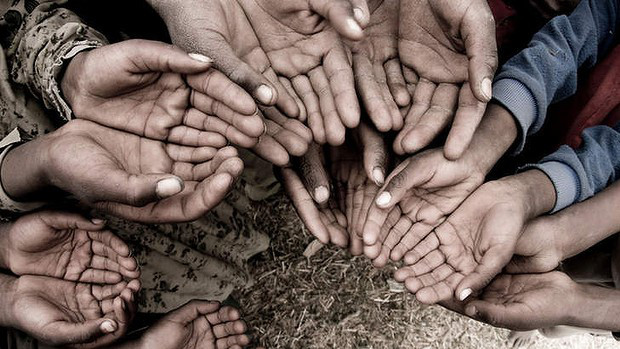A member of the Monetary Policy Committee of the Central Bank of Nigeria, Aloysius Ordu, has warned that if the Nigerian economy continues to grow at three per cent, the country’s level of poverty may double by 2050.
He stated this was at the last MPC meeting, which was published on the website of the apex bank on Monday.
During the meeting, Ordu voted to increase the monetary policy rate by 450 basis points to 23.25 per cent and raise the Cash Reserve Ratio of banks to 45 per cent.
Ordu had insisted that a robust plan from the authorities would be instrumental to getting the Nigerian economy back on its feet.
He said, “To address the associated challenges, it would thus require a whole-government approach to map out and execute a programme of economic diversification and structural transformation. A robust revival of Nigeria’s economy is needed simply to prevent the number of poor people from increasing beyond the current 133 million multi-dimensionally poor in 2022 (National Bureau of Statistics).
“Based on the performance of comparable lower middle-income countries, even an ambitious growth target of six to seven per cent throughout the next two and a half decades would still leave millions of poor people by 2050, when Nigeria will rank as the third most populous country in the world.
“More troubling, if growth continues at around the current three per cent a year, the number of people living in absolute poverty would likely double by 2050.”
The International Monetary Fund had downgraded Nigeria’s economic growth projections for 2024 to three per cent from the 3.1 per cent it forecast in October.
In its ‘World Economic Outlook Update, January 2024,’ the IMF estimated that Nigeria’s economy grew by 2.8 per cent, a slight decline from the 2.9 per cent it forecasted in October.
The international lender expected Nigeria’s economy to grow by a percentage point to 3.1 per cent in 2025. Related News Improving healthcare delivery system Millions of workers live in poverty globally – ILO Trade collaboration: Nigeria, Benin plan central banks personnel exchange
Its 2024 projection was less than the 3.76 per cent the country’s government expects in 2024.
Ordu is one of the 12 members of the MPC, who meet to determine the country’s benchmark borrowing rate.
The next MPC meeting is scheduled to take place later this month.
Speaking on Ordu’s fears, an economist with the School of Management and Social Sciences, Pan-Atlantic University, Professor Bright Eregha, maintained that the indices looked gloomy for Nigeria if cogent steps were not taken to reverse the current trend.
Eregha told The PUNCH, “If we are going to grow by three per cent, the highest that can happen is that our GDP will double. Currently, our GDP is about $400bn, which is about $800bn when doubled, but don’t forget that our population will grow.
“If GDP doubles and population remains the same way in terms of growth level, it is fair to project that poverty will double, especially with the current fiscal stance of the government, which is not prudent enough and is even causing what I call money growth because money supply is increasing by the day and it is coming from recent FAAC allocations, which indicates that we have too much naira chasing dollars.”
According to the don, the money growth is inflationary to the economy and causes exchange rate instability, and by implication, purchasing power will keep falling.
He reiterated that Ordu’s fears may yet come to pass but offered up some solutions.
“Maybe we can come out of this if we are able to grow by about seven to 10 per cent. Maybe in the next five years, we can say we will grow by about seven per cent but we have to grow to double digits.
“We have to ensure that our inflation rate is checked and our policy stance is coordinated to drive productivity in the long run and that will take us from the major source of our export, which is oil, to the non-oil sector,” Eregha said.
